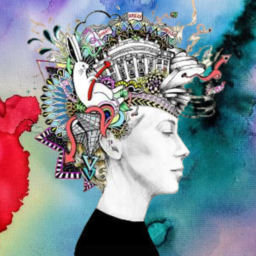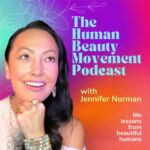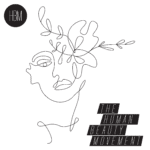
The topic of wellness has never been as emphasized as it is today. It’s something we all strive for, but many of us fall short of feeling like we’re truly ever achieving peak wellness. Why is that? Recent statistics reflect American shortfalls:
- According to a 2020 study by the Centers for Disease Control and Prevention (CDC), only 25% of American adults meet the recommended guidelines for both aerobic and muscle-strengthening physical activity.[1]
- According to the National Institute of Mental Health (NIMH), an estimated 19% of U.S. adults experienced a mental illness in 2020, with anxiety disorders being the most common.[2]
- According to the CDC, in 2018, nearly 1 in 2 adults in the U.S. had at least one chronic disease, and 4 in 10 had two or more chronic diseases such as heart disease, diabetes, and obesity.[3]
- According to the CDC, about 1 in 3 American adults do not get enough sleep on a regular basis, which is defined as at least 7 hours of sleep per night.[4]
The need for continued focus on wellness in the United States is paramount, including promoting physical activity, addressing mental health concerns, managing chronic diseases, improving sleep habits, and continuing to invest in the wellness industry.
For all the new innovations in health, fitness, food, and mindfulness, advocates strive to make wellness more accessible and easier for everyone to fit into their daily lives. Here’s an overview of some of the latest wellness trends that have gained popularity:
Digital Detox
Many people are recognizing the negative impact that technology and social media can have on their mental health and are taking breaks from screens. According to a survey by the American Psychological Association, 65% of Americans believe that periodically unplugging or taking a digital detox is important for their mental health.[5]
Digital detox refers to taking a break from technology and electronic devices, such as smartphones, laptops, tablets, and social media platforms, to improve mental and physical well-being. Digital detox can help people reduce stress, improve sleep, increase productivity, and improve their relationships with others.
Some tips on how people can detox from their devices include:
- Setting boundaries: Set specific times of the day when you will not use technology, such as during meals or before bed.
- Turning off notifications: Turn off notifications from apps and social media platforms that are not essential, to reduce distractions and interruptions.
- Taking breaks: Take regular breaks from technology throughout the day, such as taking a walk, reading a book, or practicing meditation.
- Unplugging completely: Consider taking a digital detox for a specific period, such as a weekend or a week, where you completely disconnect from all technology and focus on other activities.
- Finding alternative activities: Replace the time spent on technology with other activities, such as exercising, spending time with friends and family, or pursuing a hobby.
Of course, digital detox can be challenging for some people, especially those who rely heavily on technology for work or communication. But taking small steps towards reducing screen time and increasing offline activities can lead to improved well-being over time.
Plant-Based Diets
According to a report by Meticulous Research, the global plant-based food market is expected to grow at a CAGR of 11.9% from 2021 to 2028.[6] Plant-based diets have become increasingly popular as more people become aware of health benefits, environmental concerns, and animal welfare issues. Plant-based diets consist primarily of fruits, vegetables, whole grains, legumes, nuts, and seeds, while minimizing or eliminating animal products such as meat, dairy, and eggs.
Those who advocate for plant-based diets do so for the following reasons:
- Reduced risk of chronic diseases: Studies have shown that plant-based diets are associated with a lower risk of chronic diseases such as heart disease, diabetes, and certain cancers. This is because plant-based diets are typically higher in fiber, antioxidants, and other nutrients that promote health.
- Better weight management: Plant-based diets may help with weight management and reducing the risk of obesity. Plant-based foods are generally lower in calories and higher in fiber, which can help people feel full and satisfied while consuming fewer calories.
- Improved gut health: Plant-based diets can improve gut health by promoting the growth of beneficial bacteria in the gut. This can lead to improved digestion, reduced inflammation, and a stronger immune system.
- Reduced environmental impact: Plant-based diets have a lower environmental impact than diets that include a lot of animal products. Animal agriculture is a major contributor to greenhouse gas emissions, deforestation, and water pollution.
- Ethical considerations: Some people choose plant-based diets for ethical reasons, as they are concerned about animal welfare issues related to factory farming.
A plant-based diet can be healthy, but it’s also important to ensure that you are getting all the nutrients your body needs. People who follow a plant-based diet should ensure that they are getting enough protein, vitamin B12, calcium, and iron through plant-based sources or supplements.
Mental Health Awareness
Mental health has become a more open topic of discussion, and people are increasingly recognizing the importance of taking care of their mental well-being. This openness has dissolved away some of the stigma associated with having a mental illness. According to a report by Prophecy Market Insights, the global mental health market is estimated to be $527.44 billion by 2030 with a CAGR of +3.40%.[7]
Caring for your mental health can involve a combination of strategies and techniques to address the different aspects of mental well-being:
- Practice self-care: Engage in activities that help you relax, unwind, and recharge, such as taking a bath, reading a book, or practicing meditation.
- Exercise regularly: Physical exercise can help reduce stress, anxiety, and depression, and improve overall mental well-being. Aim for at least 30 minutes of moderate exercise most days of the week.
- Connect with others: Social connections can provide emotional support and help reduce feelings of loneliness and isolation. Reach out to friends, family, or a support group to connect with others.
- Seek professional help: If you are experiencing persistent symptoms of mental health issues, consider seeking help from a mental health professional. They can provide therapy, counseling, or medication to help manage symptoms.
- Prioritize sleep: Getting enough quality sleep is important for mental health. Aim for 7-8 hours of sleep per night and create a relaxing bedtime routine to help you fall asleep easier.
Improving mental health is an ongoing process, and it may take time and effort to see results. It’s important to be patient and persistent, giving yourself grace for setbacks. Practicing optimism increases the likelihood of happiness. And professional support from a doctor, therapist, life coach, spiritual counselor, or all of the above can make all the difference.
Mindfulness
Mindfulness involves paying attention to the present moment with openness, curiosity, and non-judgment. Mindfulness practices such as meditation, yoga, and deep breathing have gained popularity as a way to reduce stress and promote overall well-being. According to a survey by the National Center for Complementary and Integrative Health, the use of mindfulness-based practices increased from 6.1% of adults in 2012 to 14.2% in 2017.[8]
Some of the key components of mindfulness include:
- Attention: Mindfulness involves paying attention to the present moment, whether it’s through focusing on the breath, body sensations, or the environment around you.
- Non-judgment: Mindfulness involves observing experiences without judgment or evaluation. This means accepting whatever arises in the present moment without labeling it as good or bad.
- Curiosity: Mindfulness involves a sense of curiosity and exploration, as if seeing things for the first time. This allows for a greater awareness and understanding of one’s thoughts, feelings, and behaviors.
- Acceptance: Mindfulness involves accepting things as they are in the present moment, without trying to change them or resist them.
- Letting go: Mindfulness involves letting go of thoughts or emotions that arise, rather than becoming attached or identified with them.
- Compassion: Mindfulness involves cultivating a sense of compassion and kindness towards oneself and others, which can help reduce stress, anxiety, and depression.
Incorporating components of mindfulness into one’s daily life can lead to greater emotional regulation, stress reduction, and improved mental well-being.
Mindfulness & Spirituality
Mindfulness is often associated with spirituality, but it is not necessarily considered spirituality on its own. Though mindfulness has its roots in Buddhist meditation practices, it can be practiced either as part of a spiritual tradition or in a secular, non-religious way, as it is not necessarily tied to any particular belief system. Many people find mindfulness to be a helpful tool for reducing stress and improving overall well-being, regardless of their religious or spiritual beliefs.
That being said, mindfulness can also be a way to deepen one’s sense of spirituality or connection to a higher power, if that is something that is important to the individual. By learning to cultivate greater awareness and understanding of one’s thoughts, feelings, and experiences, one can achieve greater self-awareness and connection to something beyond oneself.
Wellness Experts
Escalating interest in wellness has undoubtedly given rise to coaches, counselors, and mentors that offer leading edge expertise in well-being. Past and present leading voices in the fields of well-being and mindfulness include:
- Brené Brown: Brené Brown is a researcher and author who has written extensively on topics such as vulnerability, shame, and resilience. She professes that vulnerability is essential to authentic connection and that people need to be willing to be vulnerable in order to truly connect with others.
- Johann Hari: Johann Hari is a journalist and author who has written extensively on the topic of depression and anxiety. His primary lesson is that depression and anxiety are often the result of social and environmental factors, such as disconnection, loneliness, and trauma, and that we need to address these underlying factors in order to effectively treat mental health issues.
- Tara Brach: Tara Brach is a psychologist, author, and meditation teacher who specializes in mindfulness-based psychotherapy. Her belief is that mindfulness can help people become more aware of their thoughts and emotions and can help them develop greater compassion and acceptance towards themselves and others.
- Daniel Kahneman: Daniel Kahneman is a psychologist and Nobel Prize winner who has written extensively on the topic of decision-making and cognitive biases. His key instruction is that our thinking is often influenced by biases and heuristics, and that we need to be aware of these biases in order to make better decisions.
- Scott Stossel: Scott Stossel is a journalist and author who has written about his personal struggles with anxiety. His work explains is that anxiety is a common and treatable condition, and that people should not be ashamed or stigmatized for seeking help.
- Jon Kabat-Zinn: Jon Kabat-Zinn is a scientist, writer, and mindfulness teacher who developed the Mindfulness-Based Stress Reduction (MBSR) program. He claims that mindfulness can be used as a tool to reduce stress, increase well-being, and promote healing.
- Thich Nhat Hanh: Thich Nhat Hanh was a Vietnamese Zen master, author, and peace activist who has written extensively on the topics of mindfulness and meditation. His primary teaching was that mindfulness can be used to cultivate peace, understanding, and compassion in oneself and in the world.
- Eckhart Tolle: Eckhart Tolle is a spiritual teacher and author who has written extensively on the topic of mindfulness and presence. He teaches that mindfulness can be used to cultivate a sense of presence and awareness in the present moment, which can lead to greater peace, happiness, and well-being.
- Sharon Salzberg: Sharon Salzberg is a meditation teacher and author who has written extensively on the topic of mindfulness and compassion. She believes that mindfulness can be used to cultivate compassion and loving-kindness towards oneself and others.
- Jack Kornfield: Jack Kornfield is a meditation teacher and author who has written extensively on the topics of mindfulness, compassion, and mindfulness-based therapy. His work focuses on how mindfulness can be used as a tool to cultivate greater awareness and insight into one’s thoughts and emotions and can lead to greater happiness and well-being.
These wellness experts have contributed important insights and perspectives to the world, and their work can be a valuable resource for those seeking to incorporate greater well-being into their daily lives.
Wellness vs. Well-Being
Wellness and well-being are related concepts, but they are not the same thing. Wellness generally refers to the active pursuit of physical, mental, and emotional health. It often involves making conscious lifestyle choices that promote health and prevent illness. Wellness is typically seen as a proactive approach to health, with the goal of achieving optimal health and vitality.
Well-being, on the other hand, is a broader concept that encompasses more than just physical health. It refers to a state of being that includes physical, mental, emotional, and social health. Well-being is not just the absence of disease or illness, but rather a state of thriving in all areas of life. It is often described as a holistic approach to health, which includes the pursuit of happiness, fulfillment, and a sense of purpose. Wellness is a more specific term that focuses on physical, mental, and emotional health, while well-being is a broader term that includes all aspects of a person’s health and overall life satisfaction.
In Conclusion
There is no one-size-fits-all answer to what ideal wellness or well-being is, as it can depend on various factors such as an individual’s goals, values, and personal circumstances. The key is to practice the pursuit of balance — taking care of oneself physically, emotionally, and mentally, while also pursuing activities and relationships that bring meaning and purpose to life.
How do you mind your wellness and well-being? Let us know in the comments.
—
[1] https://www.cdc.gov/nchs/products/databriefs/db443.htm
[2] https://www.nimh.nih.gov/health/statistics/any-anxiety-disorder
[3] https://www.cdc.gov/chronicdisease/resources/infographic/chronic-diseases.htm
[4] https://www.cdc.gov/media/releases/2016/p0215-enough-sleep.html
[5] https://www.apa.org/news/press/releases/2017/02/checking-devices
[6] https://www.meticulousresearch.com/pressrelease/53/plant-based-food-market-2029
[7] https://www.globenewswire.com/en/news-release/2022/06/22/2467263/0/en/Global-Mental-Health-Market-is-estimated-to-be-US-527-44-billion-by-2030-with-a-CAGR-of-3-40-during-the-forecast-period-By-PMI.html
[8] https://www.nccih.nih.gov/health/meditation-and-mindfulness-what-you-need-to-know

















